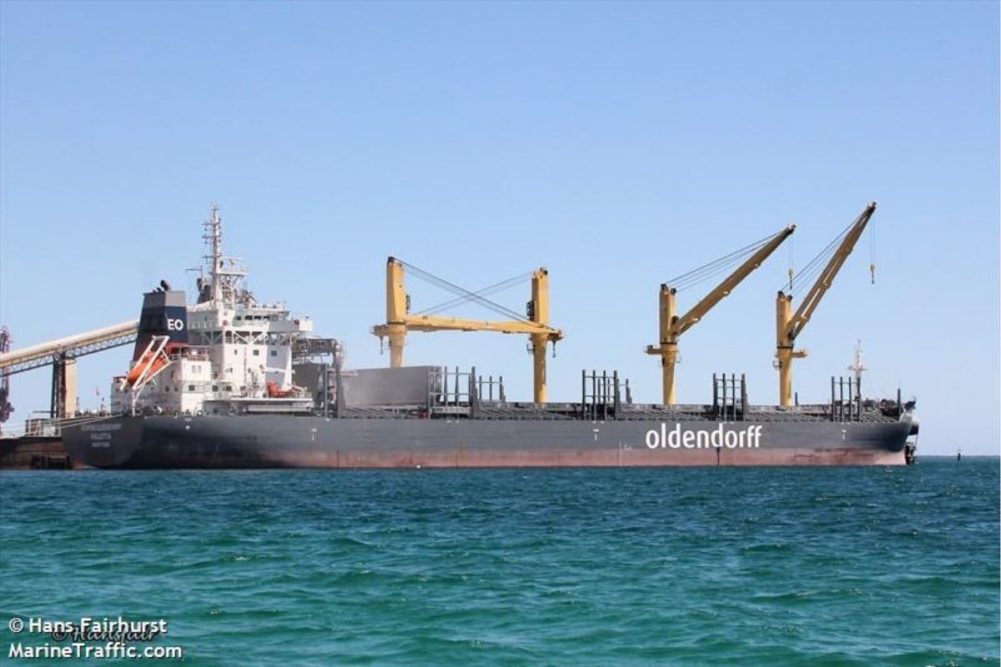PERTH, AUSTRALIA — CBH Group said it has partnered with dry bulk operator Oldendorff Carriers to conduct the first biofuel trial on a grain vessel exporting from Australia.
As part of the trial, CBH Marketing and Trading will ship 30,000 tonnes of sustainably certified malting barley aboard the Edwine Oldendorff. The Edwine Oldendorff will contain a biofuel blend supplied by integrated energy company bp.
According to CBH, the biofuel blend is expected to produce about 15% less greenhouse gas emissions than conventional fossil fuels for the trip from Albany Grain Terminal in Australia to Vietnam.
“Customers across the world are increasingly seeking to source sustainable products, including sustainable grain,” said Jason Craig, chief marketing and trading officer at CBH. “It is our role, as Australia’s leading grain exporter, to take the necessary steps to lower carbon emissions along our supply chain. Biofuel is one low-carbon option that could be part of the solution to reducing emissions in the shipping industry.”
The malting barley, which has been accredited as sustainable under the International Sustainability and Carbon Certification program, will be delivered to Intermalt. Intermalt supplies product to a number of brewing companies, including Heineken, which has set a target of a carbon neutral value by 2040.
“We need to meet the growing market demand for sustainable or carbon-reduced grain by being proactive, practical and adapting,” Craig said. “By doing this, we are making sure we can continue to keep our (Western Australia) growers competitive.”
CBH said the trial should show how the vessel engine responds to biofuel, specifically its speed and efficiency. The trial also will show the amount of emissions produced.
“We are excited to be working alongside our key global partners to conduct this trial, which will provide valuable information and help pave the way for a more sustainable grain industry,” Craig said.
In 2020-21, CBH said it sold 1.2 million tonnes of sustainably certified grain and reduced Scope 1 and 2 carbon emissions on a per-tonne basis by 38% from the previous year.




